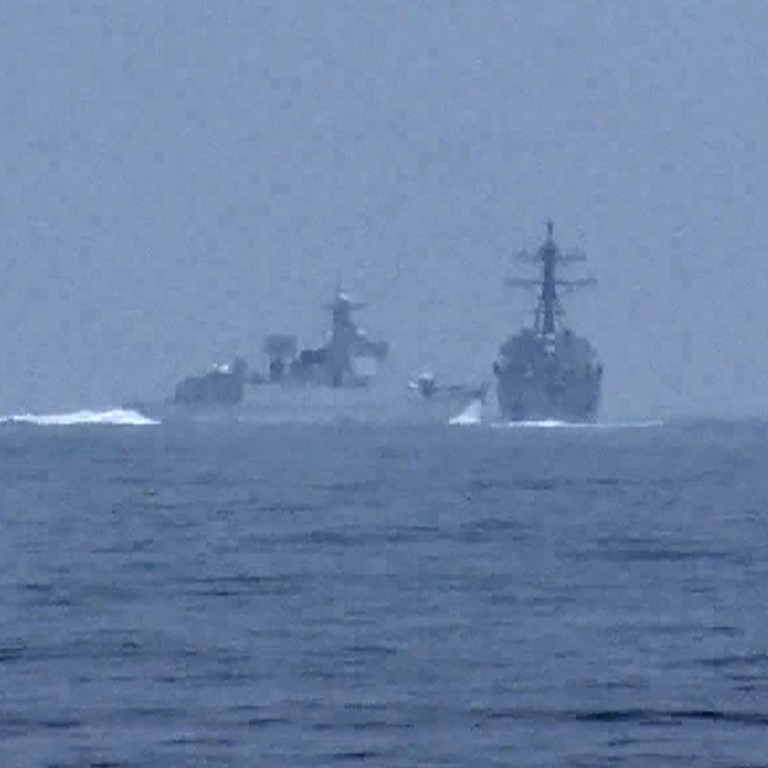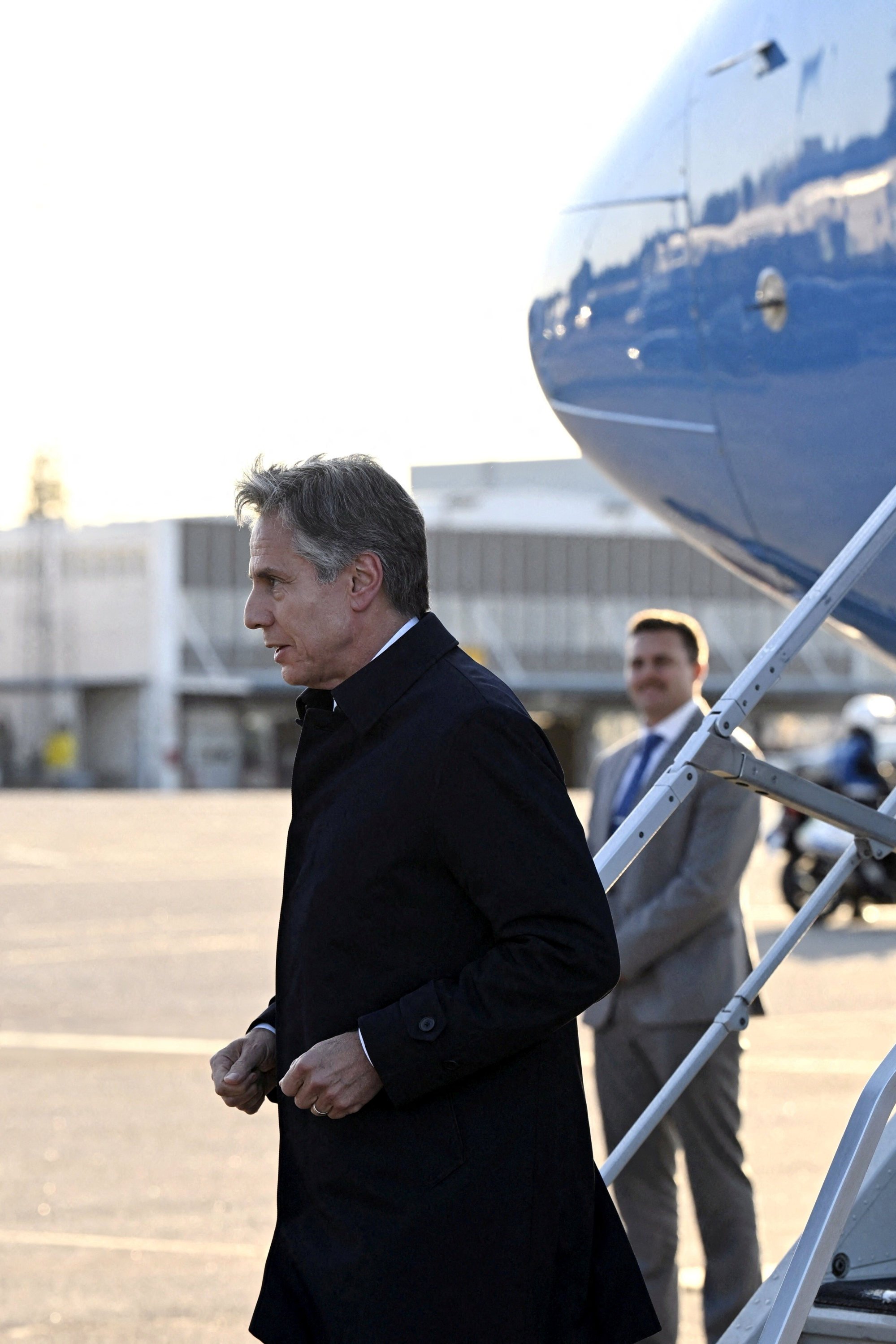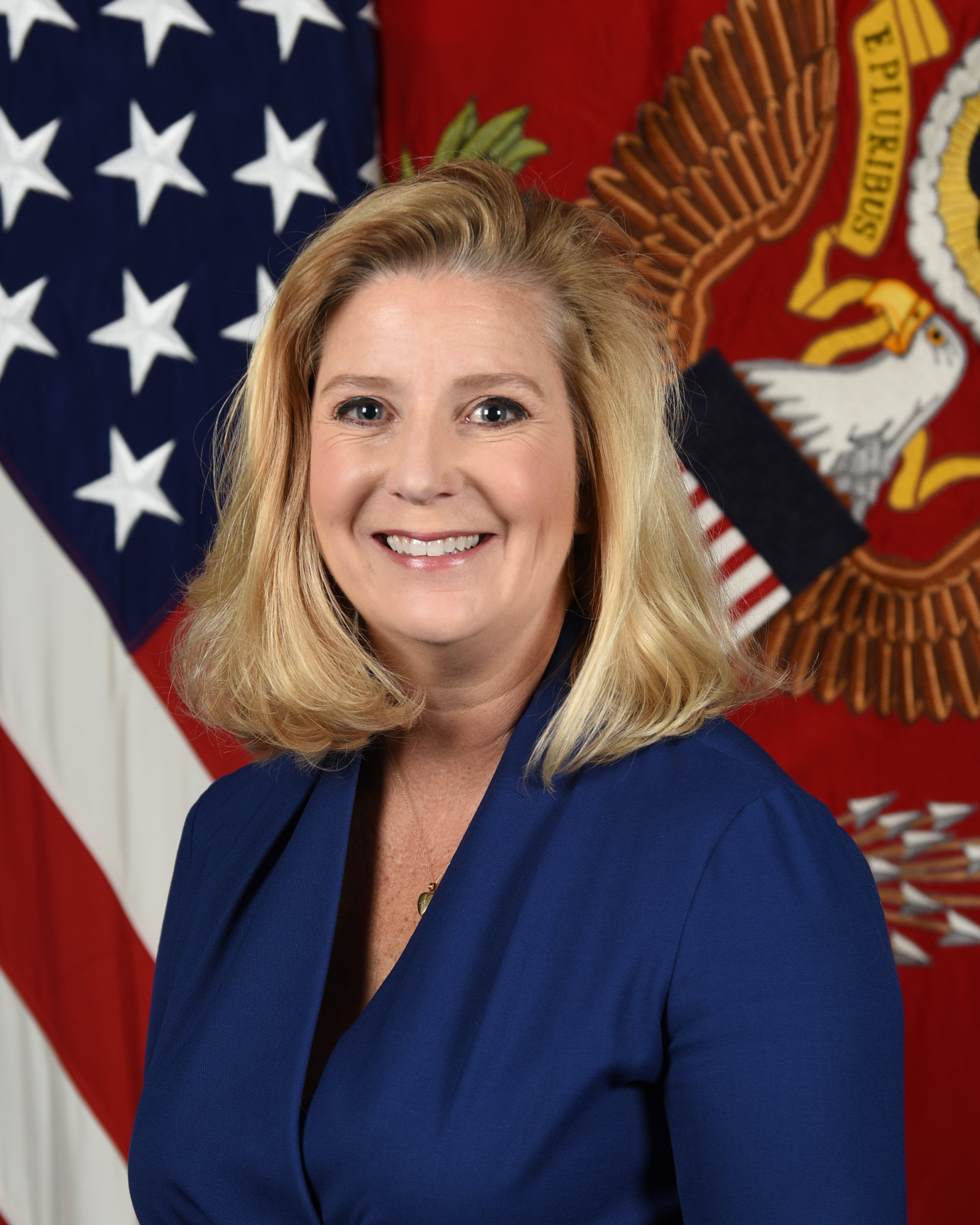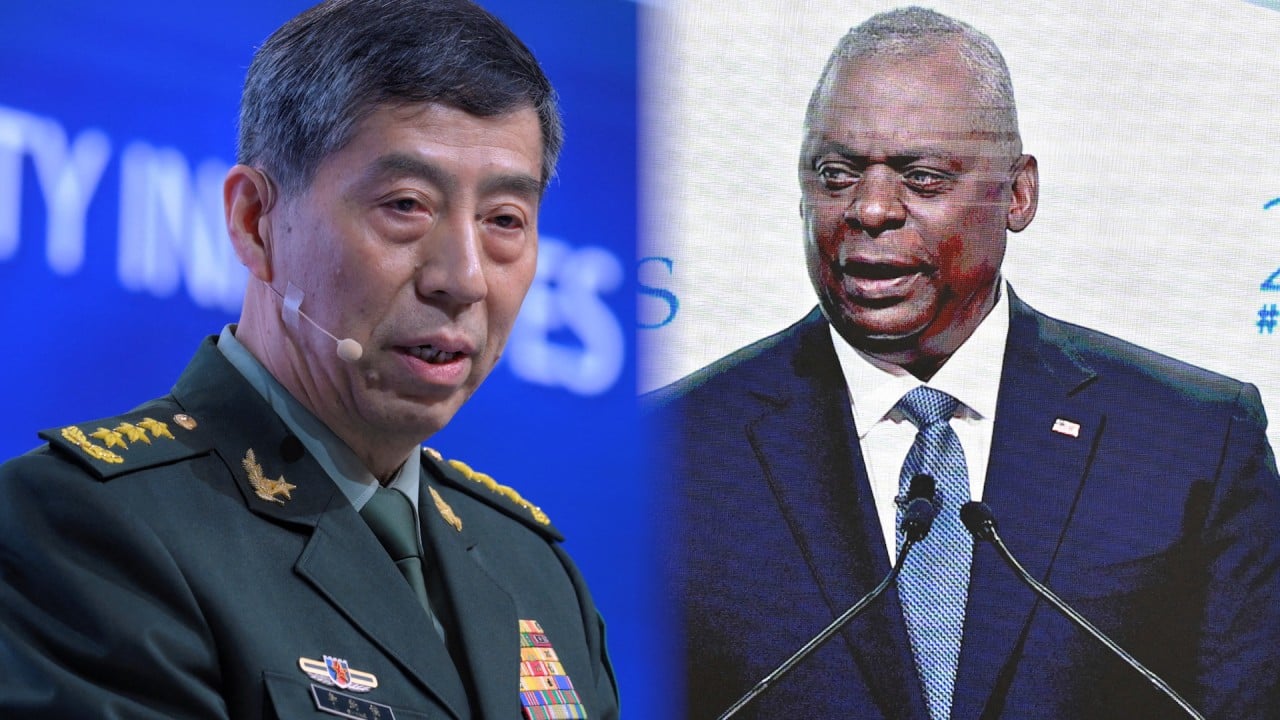
US officials warn of growing danger as China rebuffs crisis communication efforts
- Beijing’s ‘reluctance to engage’ elevates risk of military miscalculation, says White House’s Indo-Pacific coordinator
- Remarks come days after a close call between military vessels in the Taiwan Strait
The potential for a military miscalculation between the United States and China is “real and growing”, a senior White House official warned on Tuesday.
Kurt Campbell, the national security coordinator for the Indo-Pacific, acknowledged that Washington has been unable to create effective ways to allow for crisis communication in “moments of unintended conflict or tension” since Beijing remained “reluctant to engage in some of these mechanisms”.
His remarks came after China and the US traded accusations of “provocation” in the Indo-Pacific region at the Shangri-La Dialogue, an annual defence summit in Singapore, after Washington cited “dangerous” Chinese interaction with an American warship during a US-Canada joint exercise in the Taiwan Strait.
“They are not here for innocent passage, they are here for provocation,” Li Shangfu, the Chinese defence minister who denied US Secretary of Defence Lloyd Austin’s request for a one-on-one conversation on the sideline of the forum, said on Sunday.
Austin has said the US, which has a freedom of navigation policy in the region, “will not flinch in the face of bullying or coercion” while expressing “deep concerns” over Beijing’s unwillingness to engage.
“Dialogue is not a reward, it is a necessity,” he said on Saturday. “For responsible leaders, the right time to talk is any time. The right time to talk is every time. And the right time to talk is now.”
Campbell said Austin’s words reflected “the importance of the United States and China establishing mechanisms of communication procedures for crisis management”.
“The juxtaposition of Secretary Austin making this case at the very time that a Chinese destroyer was practicing dangerous navigational tactics against a freedom of navigation mission in the Taiwan Strait, I think was absolutely clear about why this is so important,” Campbell said.

As Washington seeks to resume high-level interaction with Beijing, Bloomberg and NBC News reported on Tuesday that US Secretary of State Antony Blinken would travel to China in the coming weeks for talks with top officials, possibly Chinese leader Xi Jinping. The State Department would not confirm the reports.
In February, Blinken postponed his scheduled trip to China after a Chinese spy balloon was shot down after floating over the US.
US Secretary of Army Christine Wormuth also spoke on Tuesday about the strategy to counter China and improve security in the Indo-Pacific. She stressed the need “to work on lowering the temperature in the region”, adding that it would be “very, very valuable for there to be an open channel of communications between Secretary Austin and his counterpart”.
“The Chinese have met with our secretary of commerce, for example, and that’s very useful. But when it comes to a potential miscalculation, I think we want to have Secretary Austin and General Milley, the chairman of our Joint Chiefs, talking to their counterparts to make sure that there aren’t any misunderstandings,” she said.
What US help to get Link 22 data system may mean for Taiwan’s status with Nato
Experts say the near-miss in the Taiwan Strait and the latest US-China rhetorical showdown highlight the tenuous nature of what US President Joe Biden recently termed a “thaw” in bilateral relations.
The Eurasia Group, a political risk consultancy, said it saw some cause for optimism in Chinese Commerce Minister Wang Wentao’s recent visit to Detroit for the Apec meeting, reading it as a signal that Xi is still interested in attending the Apec leaders summit in San Francisco in November.
“Returning to more reliable engagement on non-defence issues is critical groundwork ahead of any Xi visit, which would likely entail at least a sideline meeting with Biden,” it said in a report. But it added that progress on trade, economic or related civilian issues did not mean Beijing was interested in re-engaging on the defence side.

Wormuth also said the international support for Ukraine was a lesson for Beijing, and that if there were a war in the Indo-Pacific, “I think it is highly unlikely that China would be facing the United States alone” and that it would be met by “a coalition of countries”.
Pointing to India, which has been locked in a protracted border dispute with China, as a key ally in the region, Wormuth said the US “absolutely want[s] to be supportive of India in that regard”.
In December, the US for the first time shared real-time intelligence with New Delhi, including satellite imagery, about Chinese positions along the contested border.
The Pentagon said on Monday that both sides agreed to fast-track technology cooperation and defence co-production after Austin met with his Indian counterpart in New Delhi. Reports suggest that the US agreed to transfer technology for fighter jet engines and to sell 30 MQ-9B armed drones to India.
Biden to host India’s Modi for state visit in June
Austin said the cooperation mattered “because we all face a rapidly changing world. We see bullying and coercion from the People’s Republic of China and Russian aggression against Ukraine that seeks to redraw borders and threatens national sovereignty.”
Specific agreements are expected to be announced during Indian Prime Minister Narendra Modi’s state visit to Washington later this month, when he will also address a joint session of Congress.
Campbell said he hoped Modi’s trip would “basically consecrate the US-India relationship as the most important bilateral relationship for the United States on the global stage”.


